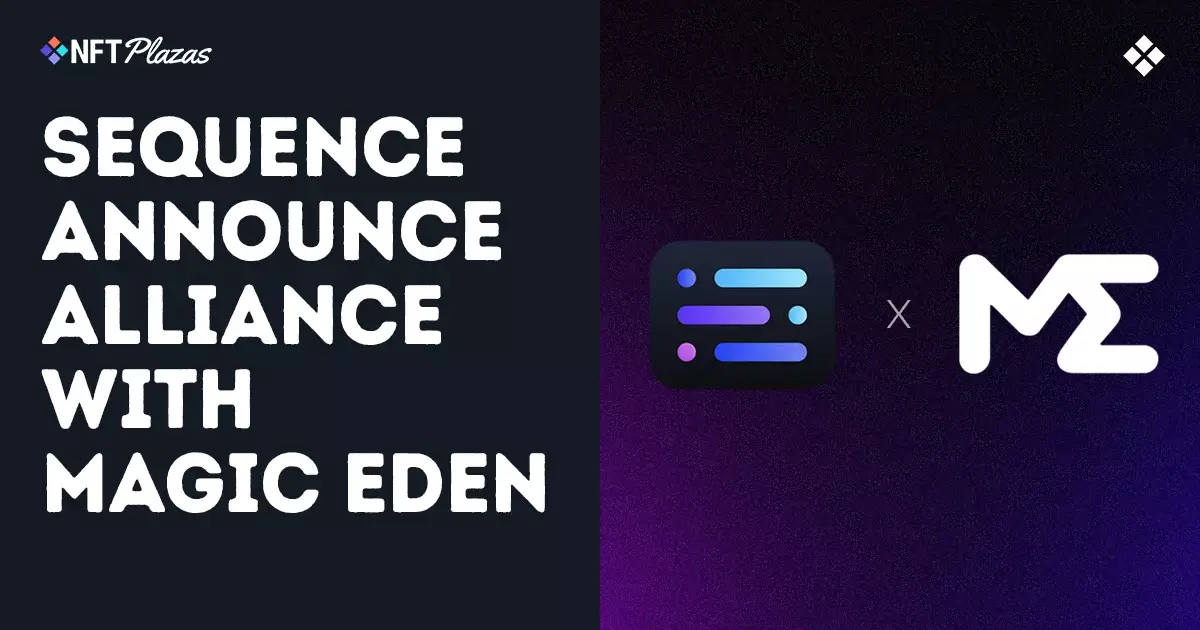In the rapidly evolving landscape of blockchain technology and digital assets, the partnership between Sequence and Magic Eden signifies a monumental shift for developers and creators alike. As someone positioned at the intersection of technology and creativity, I view this alliance not merely as a collaboration but as a pivotal moment for the Web3 gaming ecosystem. The confluence of Sequence’s robust infrastructure and Magic Eden’s expansive marketplace creates a fertile ground for innovation. Unlike past partnerships that have pulled attention in various directions, this particular union aims to streamline and bolster the development pipeline, simultaneously offering large-scale accessibility to creators.
A Unified Development Experience
The crux of Web3 success lies in its accessibility for developers who are uniquely tasked with harnessing blockchain technology to deliver immersive digital experiences. What Sequence brings to the table is an all-in-one developer platform that simplifies this complexity. Their solutions allow developers to focus on what they do best—creating engaging games—while the underlying web3 tech intricacies are expertly managed by Sequence itself. This distinct separation of concerns promotes efficiency and creativity, enabling various creative teams to elevate their projects to new levels without getting bogged down by technical limitations.
It’s important to ponder: can we consider this alliance as a possible foundation for a shift from traditional game development paradigms? Perhaps it is time to redefine what it means to be a game developer in a decentralized world, where the interplay between creativity and technology can lead to unbounded innovations.
Instant Access to Liquidity and User Base
With Magic Eden’s renowned marketplace infused into the operational framework of Sequence, a uniquely compelling proposition emerges for any blockchain game developer: instant access to liquidity and a wide player base. For too long, developers have struggled to establish a foothold in a space cluttered with startups vying for attention. By creating a synergistic environment, this partnership offers a level of market trust and exposure that would typically require years of effort to build independently.
As someone who has observed the challenges new Web3 entrants face, I find this to be a major breakthrough. The integration of liquidity streams and distribution channels effectively mitigates the risks associated with launching a new project. The possibilities are endless for those developers focused on delivering compelling player-centric experiences, with less friction in navigating the complexities of blockchain monetization.
End-to-End Monetization Streams
Another noteworthy aspect of this partnership lies in the access to end-to-end monetization capabilities. This ensures that developers not only have avenues for primary sales but also established channels for secondary market royalties. It is not merely about profit; it’s about sustaining a healthy ecosystem where creators are rewarded continuously for their work. The emphasis on royalty-enforced transactions ensures that the industry gravitates toward a more ethical model of revenue sharing, which is ironically a rarity in traditional gaming frameworks.
Magic Eden’s sentiment echoed through Chris Akhavan’s remarks about empowering creators. The phrase “tools and opportunities they need to thrive” resonates deeply, illustrating the essence of what this partnership is designed to achieve. By embracing royalty frameworks, we are nudging the conversation toward a more equitable distribution of wealth in the gaming landscape.
A Call for Industry-Wide Transformation
This strategic alliance is more than just a logistics enhancement; it serves as a clarion call for other players in the blockchain gaming field. The message here is clear: cohesive partnerships can amplify the strengths of individual platforms in ways that single entities cannot achieve alone. The broader industry needs to take note; if we aim to innovate and thrive, collaboration must replace competition as the primary modus operandi.
While many blockchain projects have descended into tribalism, focusing on the proverbial ‘walled gardens’ to protect their assets, the Sequence-Magic Eden partnership illustrates the power of unity. It promotes the idea that we can create a more interconnected gaming ecosystem by leveraging each other’s strengths, a lesson that should echo throughout the wider landscape of digital assets and blockchain innovations.
In an era where decentralization is touted as the future, this collaborative approach may be the linchpin that many have overlooked—a genuine opportunity for growth, innovation, and mutual benefit in a brave new world of gaming.

